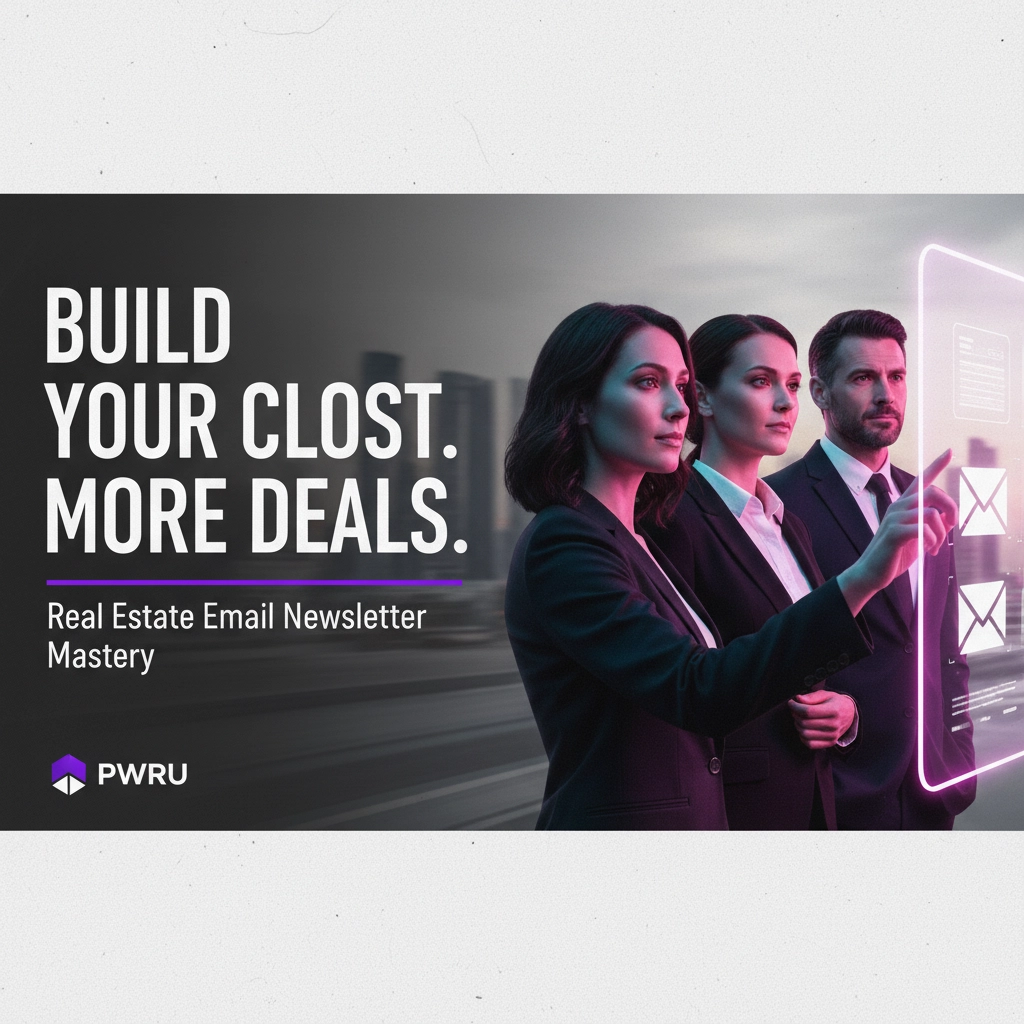Real estate agents face intense competition. Building authority through strategic branding separates top performers from the crowd. Authority drives referrals, commands higher fees, and attracts quality clients.
Your brand determines how clients perceive your expertise. Strong branding positions you as the go-to expert in your market. This guide provides actionable strategies to build genuine authority through effective branding.
Define Your Unique Market Position
Start with clarity about what makes you different. Generic real estate agents blend into the background. Authority comes from specialization and clear positioning.
Identify your specific expertise. Focus on luxury properties, first-time buyers, investment properties, or geographic specialization. This focus allows targeted messaging that resonates with your ideal clients.

Document your unique value proposition in one clear sentence. What specific benefit do you provide that competitors cannot? This becomes the foundation for all branding decisions.
Research your local competition. Identify gaps in their positioning. Position yourself to fill these gaps with authentic expertise and specialized knowledge.
Build Consistent Visual Identity
Visual consistency creates immediate recognition. Professional brands maintain identical elements across all platforms and materials.
Develop a cohesive color palette, typography, and logo system. Apply these elements to your website, social media, business cards, signage, and marketing materials.
Create brand guidelines that specify exact colors, fonts, and usage rules. This ensures consistency whether you create materials yourself or work with vendors.
Review all existing materials. Update anything that deviates from your brand standards. Inconsistent branding dilutes authority and confuses potential clients.
Establish Thought Leadership Content
Authority requires demonstrating expertise through valuable content. Share insights that help clients make informed decisions.
Publish regular market reports with local data and trends. Include specific statistics about average days on market, price changes, and inventory levels. This positions you as the local market expert.
Write detailed neighborhood guides that showcase your geographic knowledge. Include schools, amenities, transportation, and market dynamics. These guides demonstrate deep local expertise.

Create educational content about the buying and selling process. Address common client questions and concerns. This builds trust while showcasing your knowledge.
Host webinars on market trends, investment strategies, or first-time buyer education. Live events position you as an authority while generating leads.
Leverage Social Proof Strategically
Client testimonials provide powerful third-party validation of your expertise. Collect and display testimonials across all marketing channels.
Request specific testimonials that highlight your unique strengths. Ask clients to mention your specialized knowledge, negotiation skills, or exceptional service.
Display testimonials prominently on your website, social media profiles, and marketing materials. Include client photos and specific details when possible.
Create case studies that demonstrate your problem-solving abilities. Include challenges faced, actions taken, and results achieved. Specific examples build credibility more effectively than general claims.
Document your track record with concrete metrics. Average days on market, list-to-sale price ratios, and client satisfaction scores provide measurable proof of performance.
Master Digital Platform Strategy
Different platforms serve different purposes in authority building. Choose platforms that align with your target audience and content strengths.
LinkedIn works well for professional networking and sharing market insights. Post industry analysis, comment on market trends, and engage with other professionals.
Instagram showcases properties and behind-the-scenes content. Use high-quality photos and videos to highlight your listings and local expertise.

YouTube allows long-form educational content. Create virtual tours, market updates, and educational series that demonstrate your knowledge.
Maintain consistent posting schedules across chosen platforms. Regular, valuable content builds audience expectations and engagement.
Create Authority Through Educational Marketing
Educational content positions you as a resource rather than just a salesperson. This approach builds trust and attracts quality clients.
Develop a content calendar focusing on client education. Topics should address common questions, market concerns, and process explanations.
Create downloadable resources like buyer guides, seller checklists, and market reports. These lead magnets capture contact information while providing value.
Write guest articles for local publications and industry websites. External publication builds credibility and expands your reach.
Speak at industry events, community groups, and first-time buyer seminars. Public speaking demonstrates expertise and builds local recognition.
Build Real-World Authority Connections
Digital presence must be supported by real-world relationship building. Personal connections drive referrals and strengthen your market position.
Join local business networking groups and real estate professional associations. Active participation builds relationships with potential referral sources.

Sponsor community events and participate in local initiatives. Community involvement demonstrates commitment to your market area.
Develop strategic partnerships with mortgage brokers, home inspectors, and contractors. These relationships provide value to clients while expanding your network.
Host client appreciation events and first-time buyer seminars. Face-to-face interaction strengthens relationships and showcases your expertise.
Track Brand Performance and Authority Metrics
Monitor metrics that indicate growing authority and brand recognition. Regular measurement allows you to adjust strategies based on performance.
Track website traffic, social media engagement, and lead sources. Identify which content types and platforms generate the most qualified leads.
Monitor online reviews and ratings across platforms like Google, Zillow, and social media. Respond professionally to all feedback.
Measure referral rates and repeat client business. High referral rates indicate strong client satisfaction and brand trust.
Use tools like Pulse Intelligence to track market performance and identify opportunities for content creation. Data-driven insights help you stay ahead of market trends while building authority through timely, relevant content.
Implement Systematic Brand Building
Successful branding requires consistent execution across all client touchpoints. Every interaction should reinforce your authority and expertise.
Create templates for common communications that reflect your brand voice and positioning. This ensures consistency in email signatures, listing descriptions, and client communications.

Develop a systematic approach to client onboarding that showcases your professionalism and expertise. First impressions establish authority from the initial meeting.
Regular brand audits help maintain consistency and identify improvement opportunities. Review all marketing materials, online profiles, and client communications quarterly.
Building authority through real estate branding requires consistent execution and genuine expertise. Focus on providing value, maintaining professional consistency, and demonstrating specialized knowledge. Authority develops over time through repeated positive client experiences and strategic positioning.
Start implementing these strategies systematically. Choose 2-3 areas to focus on initially rather than attempting everything simultaneously. Consistent execution in key areas produces better results than scattered efforts across all strategies.
Ready to build authority through data-driven insights? Pulse Intelligence provides the market intelligence you need to create authoritative content and stay ahead of local trends.





